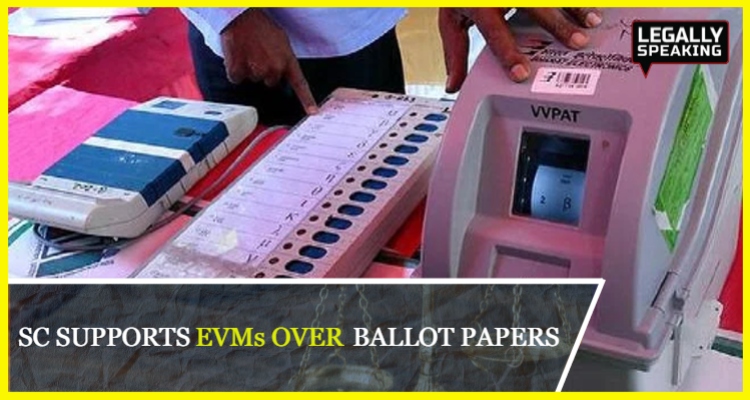
The Supreme Court criticized the condemnation of Electronic Voting Machines (EVMs) and the call for a return to ballot papers, emphasizing that the electoral process in India is a “humongous task” and efforts should not be made to “undermine the system”.
The Pleas
During a hearing on a batch of pleas seeking complete cross-verification of votes cast using EVMs with Voter Verifiable Paper Audit Trail (VVPAT), a system enabling voters to verify if their vote was correctly cast, a bench of Justices Sanjiv Khanna and Dipankar Datta expressed skepticism towards the argument that many European countries have reverted to ballot papers after trying out voting machines.
What did the Bench Said?
“This is a humongous task. No European country can do this. You talked about Germany but what is the population there. My home state West Bengal is far more populous than Germany. We have to repose faith and trust in the electoral process. Don’t try to bring down the system like this,” Justice Dipankar Datta remarked.
The bench highlighted the significant population and scale of the electoral process in India, noting roughly 98 crore registered voters. They acknowledged the possibility of some discrepancies due to human errors but emphasized the capability to address and rectify them.
Justice Khanna recalled instances of booth capturing in the past, underscoring the improvements brought about by EVMs. Advocate Prashant Bhushan, representing NGO ‘Association for Democratic Reforms’, advocated for a return to ballot papers, citing examples like Germany. However, the bench emphasized the reliability of machines in comparison to potential human biases.
Election Commission
The bench posed inquiries to Election Commission officials regarding EVMs’ functioning, storage, and the potential for data manipulation. They requested a comprehensive overview of EVM processes from assembly to post-counting storage.
Bhushan proposed that every voter should receive a paper slip of their vote from the VVPAT machine and drop it into the ballot box. He also criticized the replacement of transparent glass on VVPAT machines with opaque glass.
The bench questioned the possibility of subjecting EVMs to technical evaluation post-counting to rule out manipulation, urging transparency in the electoral process. They sought clarification on the legal consequences for EVM manipulation and emphasized the need for accountability.
The hearing, involving various petitioners and suggestions such as using bar codes to reduce manipulation risks, remained inconclusive and is set to resume on April 18, amidst the upcoming Lok Sabha polls beginning on April 19.
One of the petitioners, the ADR, advocated for matching EVM counts with verifiable votes and ensuring voter confidence in the electoral process through VVPAT slips.




